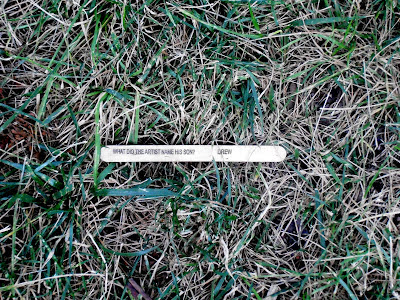Bob Dylan, disciplined
and froggy, drops lyrical pint after pint of blood on new album, Tempest.
When Bob Dylan, 71, opens his throat to
sing on his newest album, Tempest,
the listener almost has to wonder if the songwriting legend is alright. Is he
choking? Is that the sound of blood coughs? Did he just swallow a bunch of
corrosive acid? Dylan the Phlegm Master. Dylan the Road Scholar. Never once
known for a voice of gold, the man once referred to as Judas, returns with a
stark, spooky album concerned with death and his rocky quaver suits it
perfectly.
Dylan continues on his late-career surge
with Tempest following the drawn-out
story albums Time Out Of Mind, Love And
Theft, Modern Times and Together
Through Life. The new one, though, is less mid-afternoon bar band and more
Sleepy Hollow night-croak. Its tales are of murder, suicide, revenge and
longing. Times changed long ago and now we’re stuck in the pit of despair.
A light piano breeze opens the record on
“Duquesne Whistle,” a warm, gauzy jangle. The guitars tangle side by side and
sound like little birds laughing to each other. Dylan is breathing his first
(and last) sunny breath as he carouses around town. It only gets darker from
there.
By the next song, “Soon After Midnight,”
Dylan is alone and contemplating a life of hardships with the utmost ease. His
grin is chiseled as he wishes for someone not there. “Narrow Way” picks the
mood up with a rolling snare shot and guitars like alarms. Throughout Tempest his voice is mostly a constant rasp,
but every now and then it’ll settle into a wavering and ghoulish tone. At
points, especially in "Scarlet Town," you can actually hear his lips
curling above his teeth as he carefully enunciates. It's sinister, static spine
stuff.
“I pay in blood, but not my own,” Dylan
warns on “Pay In Blood.” If any other performer at this age wrote a song with
that chorus it would come off as hokey. With Dylan, though, it’s actually believable.
I imagine smearings of blood on his lyric sheet as he writes at some unknown
hour.
If “Duquesne Whistle” feels like a
serene day in early June, then by “Scarlet Town” the album has reached a dark
late-October night. The song floats along with ghost-sense as Dylan bellows and
cackles. The scene is filled with beggars, junkie whores, intruders and missed
opportunities with the end very near. Midway through an irksome guitar solo
worms its way to the front of the mix, electrifies the listener’s senses, then
disappears.
“Early Roman
Kings," the following song, keeps the dread from overtaking with a Mannish
Boy stroll. Dylan’s playing master and commander. “I could strip you of life,
strip you of breath, ship you down to the house of death,” he sings. I fear the
moment this man dies and his soul is unleashed unto the world.
Truly triumphant is Dylan on "Tin
Angel." The listener is carefully walked through a bloody knock-down
scuffle with knives drawn, bullets grazing ears and faith drying up. The music
is steady and ambient, built around a sweet recurring pull on the bass string
that tunnels in on the density of the scene. The shadow of each character
flares on the attic walls of the listener’s mind.
The album ends with two final odes to
death: “Tempest” about the Titanic sinking and “Roll On John” about John Lennon’s
passing. Much has been written about these two songs and they mostly feel out
of place musically, but what’s an album of death without mention of two
historically significant endings? One can only hope it’s still a long time
coming before Dylan is himself the subject of such a song.
Key Tracks: "Tin Angel," "Scarlet Town," "Pay In Blood," "Duquesne Whistle"






